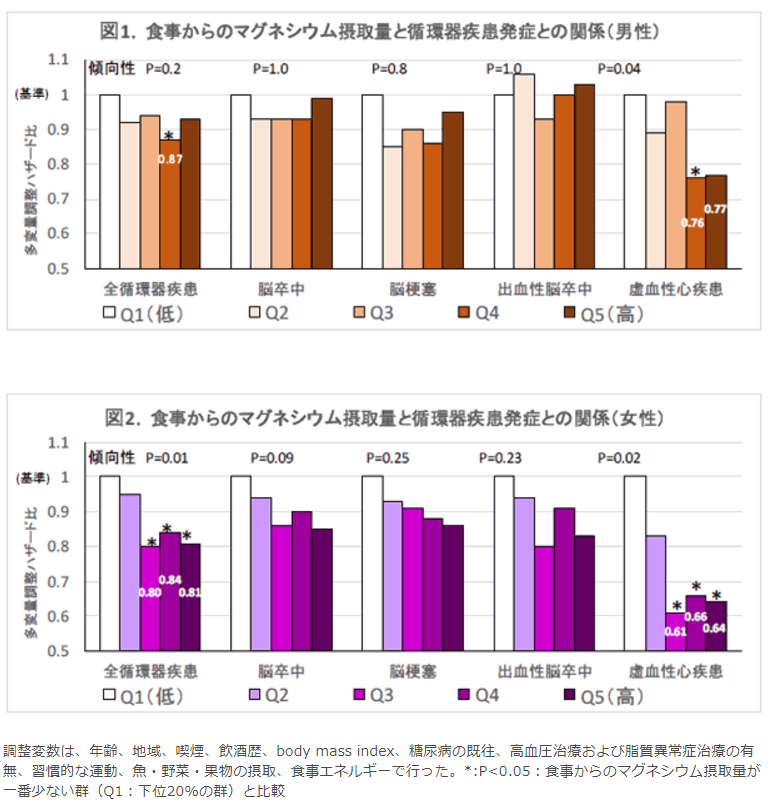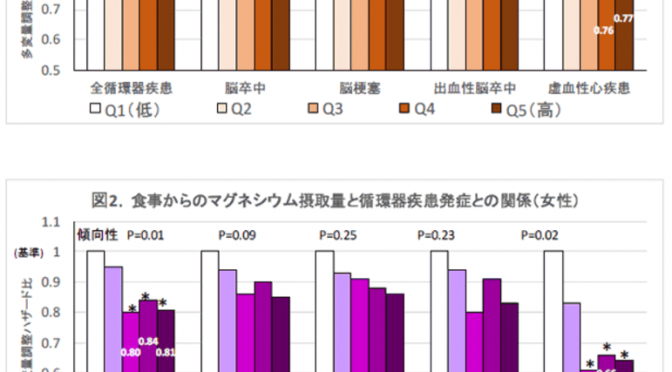【追記(2024年10月19日)】
西田敏行さん死因、虚血性心疾患とは? 前兆なく発症、突然死も(2024年10月19日、毎日新聞)によれば、西田敏行さんの死因は虚血性心疾患だったそうです。
■虚血性心疾患とは?
虚血性心疾患の代表例は、狭心症や心筋梗塞です。
→ 心筋梗塞 について詳しくはこちら
虚血性心疾患(狭心症・心筋梗塞)の4大危険因子は、糖尿病・高血圧・脂質異常症・喫煙です。
→ 糖尿病 について詳しくはこちら
→ 高血圧 について詳しくはこちら
→ 脂質異常症(高脂血症) について詳しくはこちら
【関連記事】
■心不全とは?
心不全とは、心臓の働きが不十分なことが原因で起きている体の状態のことで、病名ではないそうです。
心不全の症状としては、血液を送り出す能力の低下による症状と血液のうっ滞によって起こる症状があります。
血液を送り出す能力の低下による症状としては、心拍出量が減ったことが原因で、「疲れやすい」「だるい」「動悸がする」などの症状があります。
血液のうっ滞によって起こる症状としては、血液を送り出す能力が低下すると、心臓から前方へ血液が進みにくくなり、心臓の後方、血液を受け取る側で血液のうっ滞が起こります。
心不全の種類、程度、原因が様々あるように、その症状も多様で、紹介した症状が全ての患者さんに当てはまるわけでもなく、また、紹介した症状があるからといって心不全と判断できず、また他の病気の可能性もあるそうです。
息切れや動機、疲労感というのは年齢のせいかなとも思ってしまう症状ですので、自己判断が難しいようですね。
【関連記事】
■心不全になりやすい人とは?
●血糖値が高い糖尿病患者
血糖値高い糖尿病患者ほど心不全にー国循研究センターで紹介した国立循環器病研究センターによれば、血糖値が高い糖尿病患者ほど心不全で入院する割合が多いということから、血糖値と心不全には関係があることがわかったそうです。
「HbA1c(ヘモグロビンエーワンシー)」は、赤血球に含まれるヘモグロビンにブドウ糖が結びついたもので、赤血球の寿命が長いため、過去1~2カ月の血糖状態を把握できます。
HbA1cが8.4%以上のグループでは心不全入院が多かったそうです。
また、心筋梗塞の持病をもともと持っている患者では、HbA1cが 8%以上と6.9%以下で心不全の危険性が高まる傾向にあり、心筋梗塞の持病をもともと持っていない患者では、HbA1cが低い方が心不全が少ない傾向がわかったそうです。
●メタボリックシンドローム
慢性心不全患者:メタボの人の割合、一般の2倍--厚労省が全国調査で紹介した厚生労働省研究班の全国調査によれば、慢性心不全患者の人は、メタボリックシンドロームの人の割合が一般の人の2倍以上であることそうです。
メタボを放置すると心筋梗塞(こうそく)を発症し、慢性心不全へと移行する可能性が示唆されています。
●高血圧
心不全の原因は様々で、心筋梗塞などの心臓病だけでなく、高血圧で心臓に負担がかかっている場合も心不全の原因となるそうです。
高血圧以外にも、動脈硬化やアルコール、遺伝、感染症が原因となって心臓病になり、過労やストレス、暴飲暴食、風邪などの因子が加わって、心不全の症状が現れるそうです。
●鉄分不足
心臓は1日に約10万回鼓動していて、加齢とともに心臓機能は落ちていきます。
心臓では収縮や拡張が繰り返されていますが、心臓の機能が弱くなると、十分な血流を送ることができずに、心不全に陥りやすくなってしまいます。
いま心臓が衰えた人が増えているそうで、例えば、体を動かすと息切れを起こす、疲れやすいという方は、心不全の一歩手前の心不全の予備軍の可能性があります。
心臓の機能が低下・衰えている理由として、心臓に必要な栄養素が足りていないのではないかという説があるそうです。
その栄養素とは、「鉄分」。
身体の中には、3~5gの鉄分(釘1本分)が含まれていて、鉄分を含むヘモグロビンが全身に酸素を送っています。
また、鉄分は筋肉を動かすエネルギー源になり、鉄分が不足することによって心臓も動きが悪くなると考えられます。
※スタミナアップ!ミトコンドリアを増やす2つの方法|ためしてガッテン 8月26日によれば、「鉄」はミトコンドリアがATP(エネルギー)を作り出すのを助ける働きをしてくれるそうです。
そこで、鉄分を補給することによって、心不全を予防できるのではないかという説が立てられたのです。
→ 鉄分の多い食品 について詳しくはこちら
●新型コロナウイルス感染
コロナ感染が心不全のリスクを高める?によれば、新型コロナウイルス(SARS-CoV-2)の持続的な感染が心不全のリスクを高める可能性があることを、ヒトiPS細胞を用いた実験で明らかにしました。
■心不全のサイン
【たけしの家庭の医学】握力を鍛えて血管年齢若返り!NO分泌入浴法のやり方!によれば、握力を維持できていない人は心血管疾患による死亡リスクが高いと考えられ、反対に握力が維持できている人は心血管疾患による死亡リスクが低いそうです。
【補足】
●握力が強いほど長生き?|循環器病の発症リスクも低い|厚生労働省研究班(2012/2/20)
厚生労働省研究班の約20年間にわたる追跡調査によれば、握力が強いほど長生きする傾向があり、死亡リスクだけでなく、心臓病や脳卒中といった循環器病の発症リスクも下がっていたことがわかったことで、健康状態を表す指標として、握力が使える可能性があるそうです。
”#血圧サージ”が危ない~命を縮める血圧の高波~|タオルグリップ法(ハンドグリップ法)|#NHKスペシャル #ガッテンで取り上げたカナダ・マクマスター大学の研究者によれば、8週間のアイソメトリックハンドグリップ(IHG)トレーニングをしてもらったところ、血圧が低下し、動脈の拡張能力が増加することがわかったそうです。
高血圧の代替療法として効果的なのはウォーキングなどの「有酸素運動」と「ハンドグリップ法」であるとして、その理由として、有酸素運動やハンドグリップ法をすると、血管の内皮細胞から血管の壁を柔らかくして血管を広げる作用がある一酸化窒素が出てくるためと紹介されています。
●握力は健康のバロメーター!?|握力低下は心臓発作・脳卒中リスク増加に関連(2015/5/15)
カナダ・マクマスター大学(McMaster University)が主導した国際研究チームは、握力が健康のバロメーターになる可能性についての研究を行ない、その結果、握力が低下すると、心臓発作や脳卒中の発症リスクの増加に関係していることがわかったそうです。
具体的には、握力が5キロ低下するごとに、何らかの原因による死亡リスクが16%増加する関連性が認められ、この握力低下は、心臓発作リスクの7%増、脳卒中リスクの9%増にそれぞれ関連していたそうです。
■虚血性心疾患のリスクを下げるには?
●食事からのマグネシウム摂取量が多いグループは虚血性心疾患(狭心症・心筋梗塞)の発症リスクが低い|#国立がん研究センター
 食事からのマグネシウム摂取量と循環器疾患発症との関係(男性・女性)
食事からのマグネシウム摂取量と循環器疾患発症との関係(男性・女性)
参考画像:食事からのマグネシウム摂取量と虚血性心疾患発症との関連-多目的コホート研究(JPHC研究)からの成果-(2017/9/8、国立がん研究センター)|スクリーンショット
国立がん研究センターと国立循環器病研究センターの共同研究によれば、食事からのマグネシウム摂取量と循環器疾患(脳卒中及び虚血性心疾患)との関連を検討したところ、マグネシウム摂取量が多いグループは虚血性心疾患の発症リスクが低いことがわかったそうです。
→ マグネシウムの多い食品 はこちら
●魚、果物、大豆による循環器疾患の発症リスク
多目的コホート研究の先行研究では、魚、果物、大豆による循環器疾患の発症リスクの低下が報告されています。
魚・n-3脂肪酸摂取と虚血性心疾患発症との関連について|多目的コホート研究
魚を多く食べるグループで虚血性心疾患のリスクが低下
n-3系多価不脂肪酸摂取量が多いグループで虚血性心疾患のリスクが低下
多目的コホート研究によれば、魚やオメガ3脂肪酸の摂取量が多いと、虚血性心疾患に予防的な効果があるということが示されています。
【関連記事】
野菜・果物と全がん・循環器疾患罹患との関連について|多目的コホート研究
果物で循環器疾患のリスク減
果物の摂取量が最も多いグループでは、最も少ないグループより循環器疾患リスクが19%低いという結果が出ましたが、野菜と循環器疾患リスクとの関連はみられなかったようです。
イソフラボンと脳梗塞・心筋梗塞発症との関連について
大豆をよく食べる女性グループで脳梗塞・心筋梗塞のリスクが低下
大豆を週に5日以上摂取するグループで、週に0-2日摂取するグループに比べて、脳梗塞のリスクが0.64倍、心筋梗塞のリスクが0.55倍、循環器疾患による死亡リスクが0.31倍と低いことがわかっています。
●なぜ喫煙によって虚血性心疾患(狭心症・心筋梗塞)リスクが上がってしまうのか?
喫煙は、糖尿病・高血圧・脂質異常症と並び、虚血性心疾患(狭心症・心筋梗塞)の4大危険因子の1つなのだそうです。
なぜ喫煙によって虚血性心疾患リスクが上がってしまうのでしょうか。
喫煙によって、直接血管の壁が傷害され動脈硬化が促進されます。
それだけでなく、喫煙は、血清脂質に悪影響を及ぼし、善玉のHDLコレステロールを減少させ、悪玉のLDLコレステロールを増加させたり、ニコチンを介して血圧上昇させたりすることによって動脈硬化促進を助長させます。
また、フィブリノーゲンなどの凝固因子を増加させ、血小板の粘着及び凝集を高め血栓が形成されやすい(血が固まりやすい)状態となり、血管も収縮しやすくなるので、心筋梗塞の引き金となります。
血管がぼろぼろになる、血液がどろどろになるというのは、決して食事や運動などだけの問題ではないのです。
喫煙が健康への影響について記事の中から簡単にまとめてみました。
喫煙により虚血性心疾患のリスクは約3倍になるそうです。
また、1日の喫煙本数が多いほど心筋梗塞のリスクが増加することがわかったそうです。
逆に、禁煙すると、2年以内で虚血性心疾患の発症リスクが低下したそうです。
【関連記事】
■西田敏行さん(76歳)死去、過去には心筋梗塞、糖尿病、胆のう炎を患う
西田敏行(76歳)が東京の自宅で亡くなっていたことがニュースになっています。
西田さんは2003年には自宅で心筋梗塞で倒れ緊急入院したこともあり、近年は糖尿病や胆のう炎などで体調を崩すニュースが多かったですね。
2003年 心筋梗塞
2016年4月 頸椎亜脱臼の手術
2016年5月 胆のう炎発症→腹腔鏡による胆のうの摘出手術
→ 心筋梗塞の症状・原因・前兆・予防 について詳しくはこちら
→ 糖尿病の症状(初期症状) について詳しくはこちら
→ 胆のうの位置・働き(機能)・病気 について詳しくはこちら
【関連記事】
血糖値高い糖尿病患者ほど心不全に|国立循環器病研究センターで紹介した国立循環器病研究センターによれば、血糖値が高い糖尿病患者ほど心不全で入院する割合が多いということから、血糖値と心不全には関係があることがわかったそうです。
心筋梗塞の持病をもともと持っている患者では、HbA1cが 8%以上と6.9%以下で心不全の危険性が高まる傾向にあり、心筋梗塞の持病をもともと持っていない患者では、HbA1cが低い方が心不全が少ない傾向がわかったそうです。
血糖値が高い人は心不全で入院する割合が高くなるため、食事や運動などで血糖値をコントロールすることが、糖尿病の状態を少しでも改善することにつながるだけではなく、心臓の病気の予防にもつながると考えられます。
ただ、心筋梗塞の持病をもともと持っている患者の場合は、血糖値が低くても心不全の危険性が高まる傾向があるため、ほかの要因がかかわっていることも考えられます。
→ 血糖値とは|血糖値を下げる食品・正常値・空腹時血糖値・食後血糖値 について詳しくはこちら



